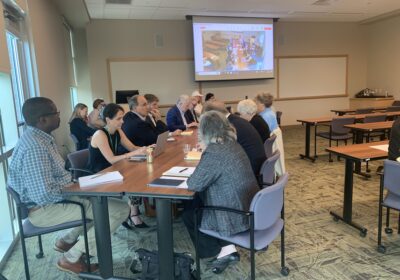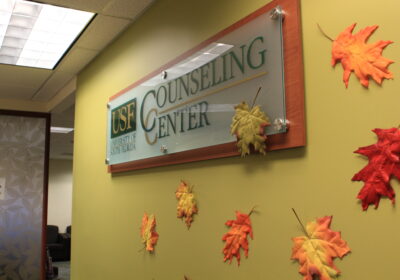BOG says Counseling Center improves student performance

Despite increased use of Counseling Centers at universities across the state, the BOG was denied additional funding for the service in the 2016 legislative session. ORACLE PHOTO/JACKIE BENITEZ
Across the state, university counseling centers are seeing an improvement in students’ levels of distress after participating in at least three sessions, according to statistics presented to the Board of Governors (BOG) in Wednesday’s meeting.
“The average distress levels for students receiving at least three individual counseling sessions during fall 2016 decreased between their first appointment and their most recent appointment regardless of the issue they were dealing with,” the report states.
When a student starts going to the Counseling Center on campus, the mental and behavioral health of the student is assessed and then reassessed at varying intervals during follow-up appointments.
Since the 2008-09 school year, the number of counseling service clients served by the State University System (SUS) has steadily increased, according to the report. In the beginning of fall, the BOG noticed the SUS had outstripped its capacity, since the number of sessions provided had increased by 67 percent.
However, requests for additional state funding for the centers were denied during the 2016 legislative session and “counseling centers are still struggling to keep up with demand,” the report states.
Data collected from nine state universities — including USF St. Petersburg — that was presented to the BOG states that in 2,036 clients who visited the Counseling Center for at least three sessions during the fall semester saw lower rates of academic distress, depression, distress index, generalized anxiety and hostility. The latter saw the largest drop in distress levels.
Additionally, data collected at three universities across the state — including USF Tampa — from 1,211 clients who met the same criteria saw lower risks of drug and alcohol use, anxiety, depression, global mental health, life functioning, suicide, symptoms and overall wellbeing. Suicide saw the largest drop.
The BOG concluded that students who utilize the Counseling Center services are more likely to remain enrolled and graduate than students who do not.
“The SUS counseling centers provide critical services to students facing a wide range of mental and behavioral issues,” the report said. “Students who take advantage of the services offered benefit from improved mental and behavioral health, which impacts their academic success.”






